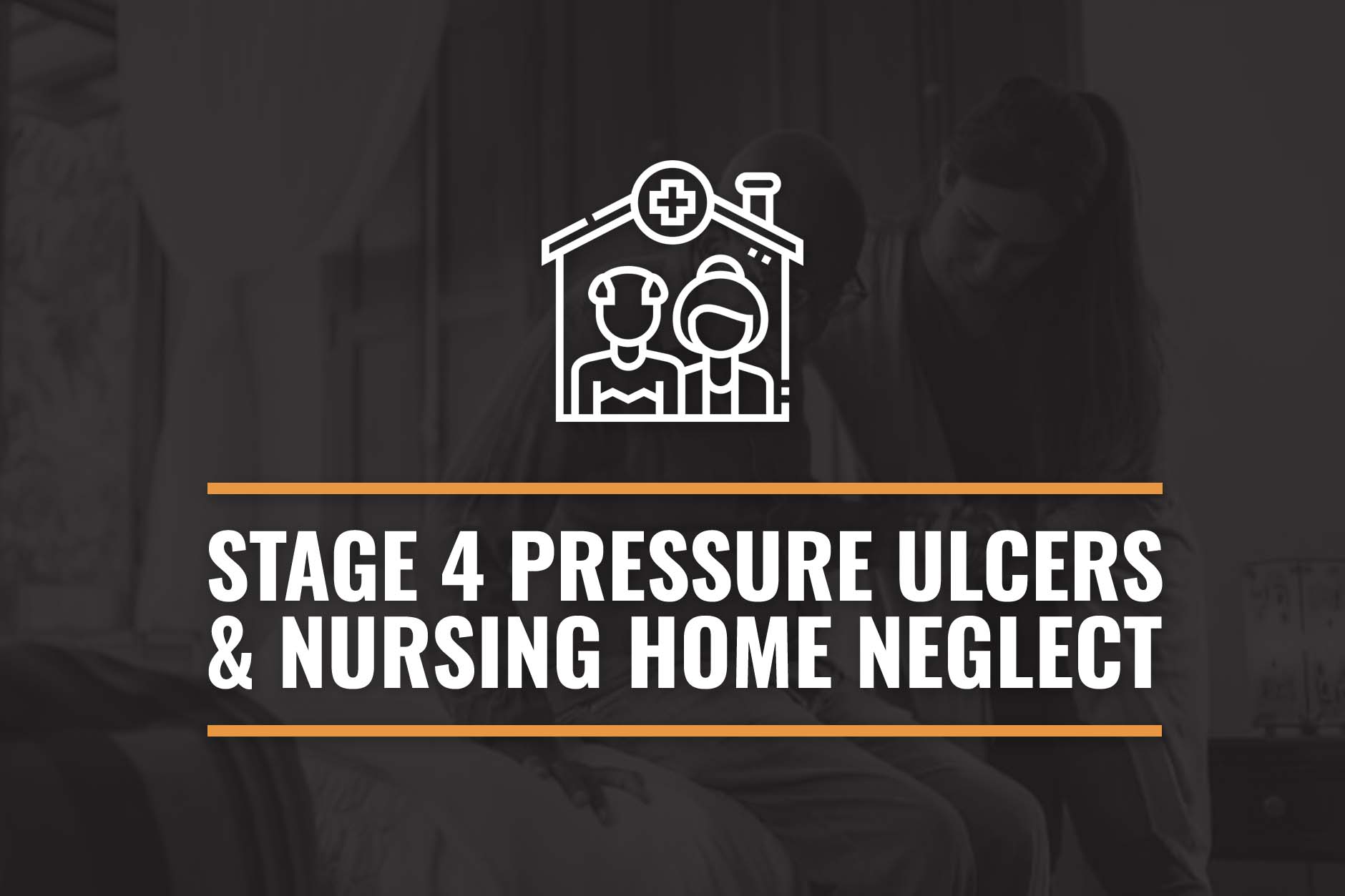
Table of Contents
After years of vibrant life, your elderly loved one now requires the care only a nursing home can provide. Initially trusting this facility’s promise to provide the necessary support, you later discover that your loved one has developed a severe wound that seems to have appeared out of nowhere. This wound, a stage 4 pressure ulcer, is a stark indication that something has gone terribly wrong in the care regimen.
Stage 4 pressure ulcers are preventable and often result from a failure to provide basic care, which is unacceptable in a facility entrusted with the well-being of our most vulnerable. At LegalGenius, PLLC, we understand how shocking it can be to discover that your loved one has suffered from such neglect. We make it our mission to help victims and their families hold nursing homes accountable for the pain and distress caused by this degree of negligence.
Understanding Pressure Ulcers
Pressure ulcers are injuries to the skin and underlying tissue resulting from ongoing pressure. They often develop on the skin covering the heels, ankles, hips, tailbone, and other bony areas. Individuals who are immobile or bedridden, whether due to illness, disability, or age, are at a higher risk because they may spend extended periods in one position without shifting their weight. This constant pressure, especially on areas over bony prominences, reduces blood flow to the skin and nearby tissues, leading to the formation of pressure ulcers.
Pressure ulcer severity is classified into a staging system that ranges from stage 1 to stage 4:
- Stage 1: This is the earliest stage and is characterized by non-blanchable skin redness. The affected area may feel warm, firm, soft, or cooler compared to adjacent tissue.
- Stage 2: This stage involves partial-thickness skin loss presenting as a blister, abrasion, or shallow crater. The area is often red and painful.
- Stage 3: At this stage, there’s full-thickness skin loss, resulting in a deeper crater that may expose some fat tissue. There’s no visible muscle or bone, but the risk of infection increases significantly.
- Stage 4: This stage, which is the most severe, represents full-thickness tissue loss with exposed bone, muscle, or tendon. The damage often extends beyond the primary wound below layers of healthy skin. Stage 4 ulcers can lead to infections, osteomyelitis (infection of the bone), or sepsis. They require immediate medical intervention.
The Link Between Stage 4 Pressure Ulcers and Nursing Home Neglect
These advanced sores do not appear overnight; they are the result of prolonged periods of inadequate care. Key factors contributing to their development include poor nutrition, lack of mobility assistance, and insufficient hygiene care.
- Poor Nutrition: Proper nutrition and hydration are fundamental to skin health and overall well-being. A diet lacking in essential nutrients can weaken the skin and other tissues, making them more susceptible to damage and slower to heal. In nursing homes, residents who are not provided with adequate nutrition may develop pressure ulcers more quickly and have a harder time recovering from them.
- Lack of Mobility Assistance: Regular movement is key to preventing pressure ulcers. Residents who are immobile or have limited mobility depend on nursing home staff for assistance in changing positions to relieve pressure on the skin. Without this critical support, these individuals are at a high risk of developing pressure sores.
- Insufficient Hygiene Care: Regular cleaning and skin care are essential to prevent infections and maintain skin integrity. Neglecting hygiene care can lead to the breakdown of the skin, creating an entry point for bacteria and increasing the risk of severe pressure ulcers.
Statistics highlight the prevalence and severity of this issue. According to a study published by the CDC, up to 28% of nursing home residents may experience pressure ulcers, with a significant portion of these being stage 4 ulcers. This data underscores not only how frequently pressure ulcers appear in such settings but also the serious consequences of neglectful care practices.
These statistics and the conditions leading to stage 4 pressure ulcers paint a clear picture: they are often preventable and typically result from a failure to meet basic care requirements. Recognizing these signs of neglect is the first step towards advocating for improved care and taking legal action if necessary.
Legal Implications of Nursing Home Neglect
Nursing homes are required to provide an adequate standard of care for all residents. This duty includes providing necessary medical attention, ensuring proper nutrition, aiding in mobility, and maintaining a clean and safe environment. When nursing homes fall short of these obligations, they can be held legally accountable for the consequences of their actions—or inactions.
The development or worsening of stage 4 pressure ulcers often signals a serious lapse in care. The law recognizes that residents of nursing homes are entitled to a level of care that prevents such adverse health outcomes. When this level of care is not provided, it constitutes a breach of duty—a failure to meet the legal obligations of care- and victims and their families can seek financial compensation.
Key legal concepts central to cases of nursing home neglect include:
- Duty of Care: Nursing homes have a legal obligation to provide a reasonable standard of care to their residents. This includes taking proactive measures to prevent pressure ulcers.
- Breach of Duty: If a nursing home fails to provide the necessary standard of care, it has breached its duty. For instance, not regularly repositioning a bedridden resident to prevent pressure ulcers would be considered a breach of duty.
- Damages: Damages refer to the compensation awarded to the victim or their family for the harm suffered. In the case of stage 4 pressure ulcers, damages might cover medical expenses for treating the ulcer, compensation for pain and suffering, and potentially punitive damages if the neglect is egregious.
If you or a loved one has suffered from a stage 4 pressure ulcer due to nursing home neglect, it’s important to know that the law is on your side. A Michigan nursing home abuse lawyer can help you hold the responsible parties accountable.
Preventing and Addressing Stage 4 Pressure Ulcers
Preventing and addressing stage 4 pressure ulcers in nursing homes requires vigilance and proactive measures from both families and care facilities. Recognizing the signs of potential neglect and understanding the steps to prevent such conditions are essential for ensuring the well-being of your loved ones.
Recognizing Signs of Potential Neglect
Families should be aware of the early signs of neglect, which can include but are not limited to:
- Unexplained injuries or bruises.
- Sudden weight loss or signs of malnutrition.
- Poor personal hygiene or unattended health needs.
- Frequent infections or an overall decline in health.
- Emotional withdrawal or changes in behavior.
Regular visits and open communication with both your loved one and their caregivers can help you stay informed about their care and condition.
Preventive Measures by Nursing Homes
Nursing homes should implement detailed care plans to prevent pressure ulcers, especially for residents at higher risk. These measures include:
- Conducting regular skin assessments to identify early signs of pressure ulcers.
- Providing adequate nutrition and hydration to maintain skin health and overall well-being.
- Implementing repositioning schedules for immobile residents to relieve pressure on vulnerable areas.
- Using pressure-relieving devices such as special mattresses or cushions.
- Ensuring staff receive training on pressure ulcer prevention and care.
Steps to Take for Stage 4 Pressure Ulcers
If a loved one is suffering from a stage 4 pressure ulcer, immediate action is necessary. Take the following steps:
- Seek medical attention. A stage 4 pressure ulcer is a serious condition that requires medical treatment to prevent infection and further complications.
- Take photographs of the ulcer and keep detailed records of all medical appointments and treatments.
- Inform the nursing home administration of your concerns and the condition so they can take corrective actions.
- Consult with a personal injury lawyer. If you suspect the ulcer is the result of neglect, a lawyer can help you protect your loved one’s rights and pursue legal action if necessary.
Addressing a stage 4 pressure ulcer is not just about treating the wound. It’s about ensuring the dignity, safety, and well-being of your loved one. By staying informed, vigilant, and ready to act, families can play a key role in preventing and addressing this issue. Never forget that you have legal resources designed to protect your loved one from neglect and to hold accountable those who fail in their duty of care.
How Can LegalGenius, PLLC Help With Your Nursing Home Neglect Claim?
Discovering that a loved one has suffered from neglect in a nursing home can be both heart-wrenching and infuriating. At LegalGenius, PLLC, our team brings a wealth of knowledge and experience to these cases. We understand the laws and regulations that nursing homes are required to follow and can quickly identify when a facility has failed to meet those standards.
Beyond legal representation, we offer advocacy and support. We understand the emotional toll these situations can take and strive to be a source of strength and reassurance for our clients. Our goal is not only to hold negligent parties accountable but also to secure full and fair compensation. This can include medical expenses, pain and suffering, and, in some cases, punitive damages.
Get a Free Consultation From a Michigan Nursing Home Neglect Lawyer
When you’re pursuing a claim for nursing home neglect, you deserve a lawyer who genuinely cares about the outcome of your case. At LegalGenius, PLLC, we offer a blend of compassion and legal skill that allows us to earn the best possible outcome for your case. Our team has the knowledge, experience, and resources needed to tackle these challenging cases head-on. We’re more than just attorneys; we’re advocates committed to justice, the lawyers who care, the lawyers who win. To schedule your free consultation, fill out our Ask the Genius™ form or call (800) 209-4000 today.

Attorney Jeffrey Perlman
Attorney Jeffrey Perlamn is the managing partner at LegalGenius, PLLC. He has helped Metro Detroit accident victims recover the compensation they deserve for over 35 years. He believes everyone should have access to justice and the legal system, which is why Attorney Perlman spends his time outside of the courtroom writing informational blogs on the LegalGenius website that are accessible to all.


